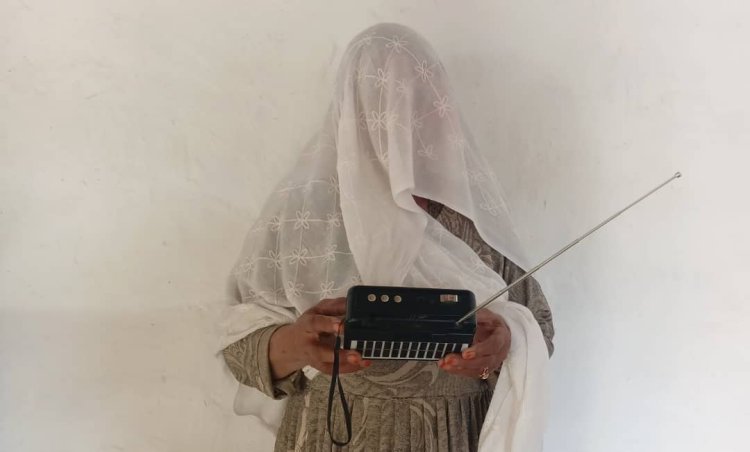Silencing the airwaves: Taliban's crackdown on radio stations in Afghanistan

Since August 2021, the Taliban have imposed strict regulations, severely restricting visual, audio, and print media, making access to information increasingly difficult for the Afghan people. Many radio stations have been forced to shut down due to economic pressures, security threats, and Taliban-imposed restrictions. According to reports, more than 130 radio stations across the country have been closed, and 1,900 journalists and radio employees, including 1,075 women, have lost their jobs. Meanwhile, the remaining active media outlets operate under strict Taliban oversight, without freedom of expression or editorial independence.
Last week, the Taliban suspended Radio Begum’s broadcasts and arrested two of its employees. Radio Begum, a station dedicated to women, was launched on March 8, 2021, in celebration of International Women’s Day. After the Taliban’s return to power, the station obtained a broadcasting license from the Taliban’s Ministry of Information and Culture to continue its programming for women. However, the Taliban justified the suspension by accusing the station of “repeated violations of broadcasting policies, providing materials to a foreign-based television network, and misusing its broadcasting license.” UNESCO condemned the shutdown, calling it “an effort to silence the voices of Afghan women.”
The Taliban have imposed extensive restrictions on radio programming, banning entertainment, music, educational content, political discussions, and critical discourse. Over the past three years, they have issued 22 directives specifically targeting the media, significantly affecting radio operations. These directives include banning women from working in national radio stations, prohibiting the broadcasting of music, restricting interviews with Taliban critics and opponents, and increasing direct and indirect surveillance by the Ministry for the Promotion of Virtue and other non-accountable entities. In some provinces, Taliban officials have even ordered radio stations to stop broadcasting women’s voices and have barred girls and women from calling in to radio programs.
One of the radio stations forced to close due to Taliban restrictions is Radio Mirman in Kandahar. This station had been broadcasting for 15 years, focusing on women’s issues. In 2020, it won the global “Impact Award” from Reporters Without Borders, and its director, Maryam Durani, received the “International Women of Courage” award from the U.S. Department of State in 2011. Before the Taliban takeover, 15 women worked at Radio Mirman, but they lost their jobs after the Taliban banned women’s voices from the airwaves, leading to the station’s shutdown.
According to reports, the Taliban closed seven radio stations last year alone. In November, the Taliban shut down Radio Zaman and Radio Long in Khost province for broadcasting music and educational programs for girls. Journalists who have protested against these restrictions have faced threats and arrests. The Afghanistan Journalists Center reports that six media employees, including three from independent radio stations, are currently imprisoned by the Taliban.
With the closure of radio stations, many people—especially those in remote areas—have lost access to information and educational programs. Human rights organizations and media advocacy groups have condemned these shutdowns as a blatant violation of press freedom and an attack on free access to information.
For decades, radio has been one of the most important communication tools in Afghanistan. Given the country’s high illiteracy rates, lack of electricity, and limited internet access in many areas, radio has played a crucial role in news dissemination, education, and entertainment. Afghanistan’s first radio station was established in 1928 in Kabul, and until 2001, only one state-run station, “Radio Afghanistan,” existed. However, during the Republic era, media freedom expanded, and over 300 private and state-run radio stations were established across the country. Before the Taliban took control in 2021, 345 active radio stations with 4,887 employees—including 1,238 women—were operating in Afghanistan.
UNESCO has designated February 13 as “World Radio Day”, highlighting radio’s role in information sharing and community empowerment. However, as the world celebrates this occasion, radio in Taliban-ruled Afghanistan is being silenced.
